Ulaanbaatar, May 22, 2025 —To implement the tripartite cooperation agreement on the construction of the “SPV Digital Competence Development Centre for TVET” between UNESCO Chair on Digitalization in TVET at Shenzhen Polytechnic University (SZPU), the Mongolian Vocational Education and Training Partnership (VETP), and the Mongolian Polytechnic College of Engineering and Technology (PCET), a five-member delegation from SZPU visited Ulaanbaatar, Mongolia, from May 19 to 22, 2025. The delegation conducted a teacher training workshop themed on Digital Transformation and participated in the Mongolian National Forum on TVET.
On the morning of May 20, the training workshop officially opened, accompanied by the unveiling ceremony of the “SPV Digital Competence Development Centre for TVET.” Dr. Yang Congkun, Coordinator of the UNESCO Chair, delivered an online speech reviewing the long-standing cooperation among SZPU, VETP, and PCET. He emphasized the demonstrative significance of establishing overseas centers under the UNESCO Chair program in promoting Belt and Road digital TVET collaboration. He also noted that this training would enhance the ability of Mongolian teachers to address digital challenges.
Speeches were also delivered by Ms. Janchivdorij Munkhzul, Senior Expert of the General Authority for Education of Mongolia; Ms. Tungalag Chimid, Director of VETP; and Ms. Bayarmaa Tsogtbaatar, President of PCET. They congratulated the inauguration of the center and highly praised the trilateral cooperation in digital TVET.
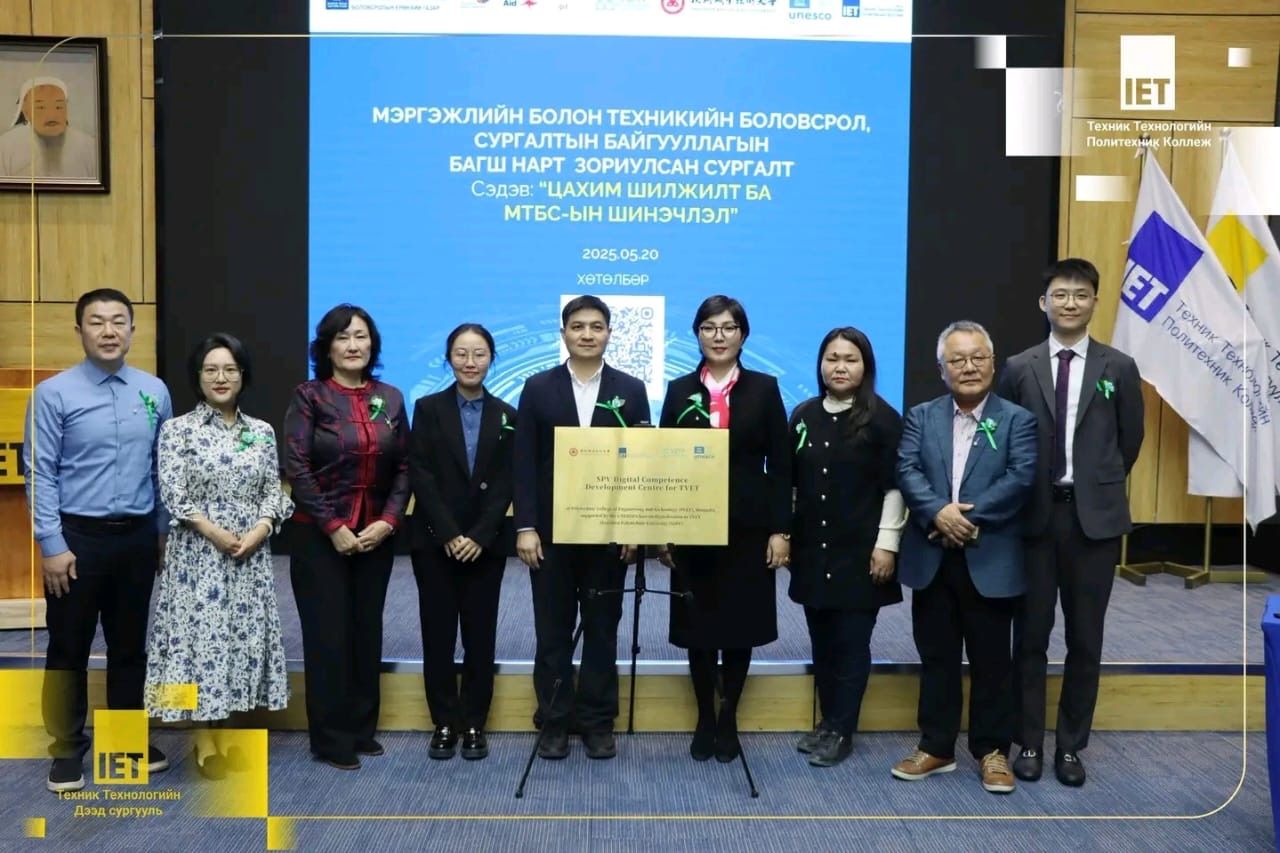
Following the opening ceremony, Ms. Chen Xueying, Programme Officer of the UNESCO Chair, introduced the UNESCO Chair on Digitalization in TVET projects at SZPU and its recent outcomes, particularly highlighting efforts in knowledge production, capacity building, and network communication.
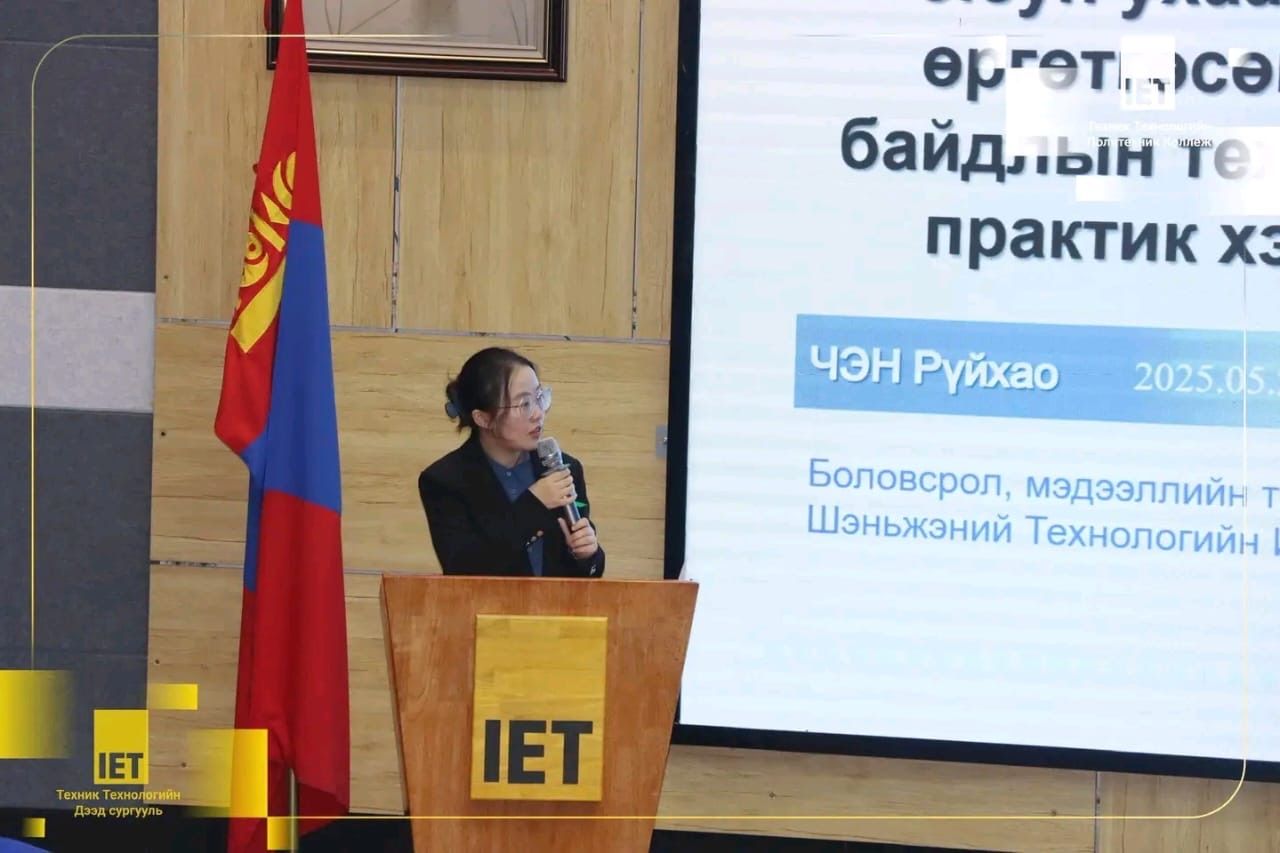
In the thematic training session, Chen Ruihao, Associate Professor from the Center for Education and Information Technology at SZPU, delivered a lecture on “Application of AIGC and XR Technology in TVET practices” Using real-life teaching scenarios, including virtual simulation training and mixed-reality instruction, he demonstrated the integration and practice of cutting-edge AI and XR technologies in TVET practices.
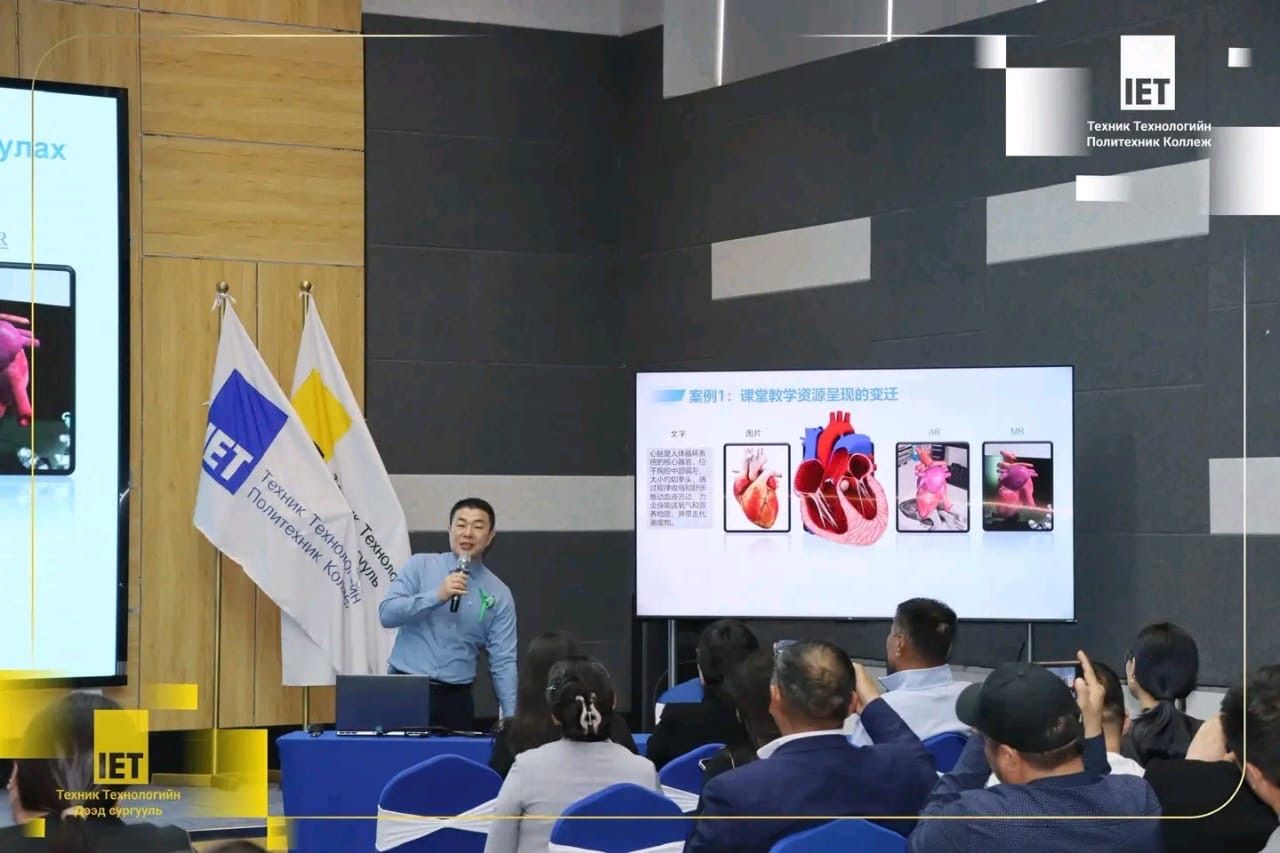
That afternoon, Li Zhanyu, Associate Professor from the School of Automotive and Transportation at SZPU delivered a lecture on topics such as “Principles and Structure of Electric Vehicle Technology” and “High-Voltage Safety Knowledge of EVs.” He provided an in-depth explanation of EV system structures, power characteristics, and safety standards, supplemented by practical teaching models to provide hands-on experiences for the trainees.
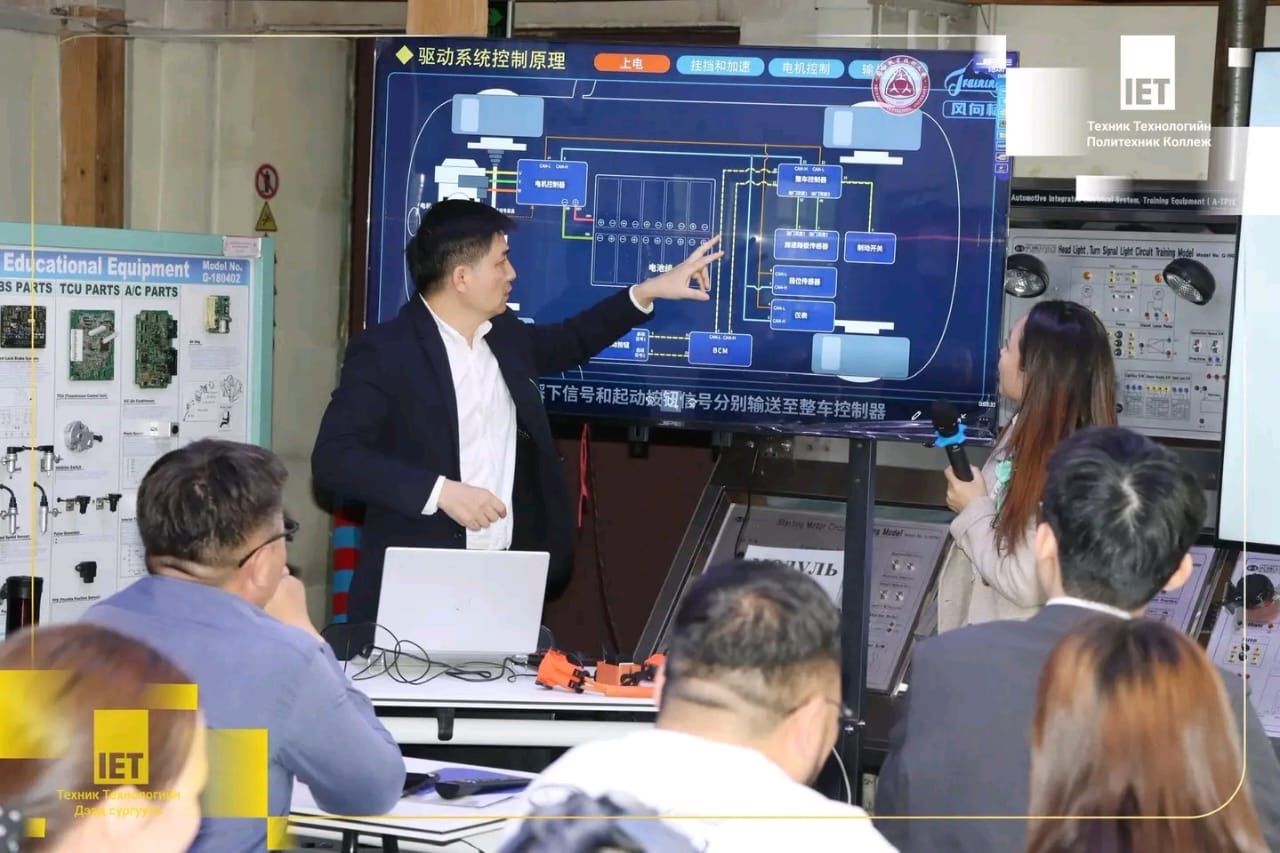
On May 21, the delegation attended the “Third Mongolian National Forum on TVET” themed on “Green Skills and Climate Change.” In the morning, Associate Professor Zhang Yaxin from the School of Materials and Environmental Engineering at SZPU delivered a report titled “Renewable Energy: Global Energy Transition and China’s Best Practices.” She elaborated on the key role of renewable energy in combating climate change by discussing global trends and China’s practices in wind and solar energy.
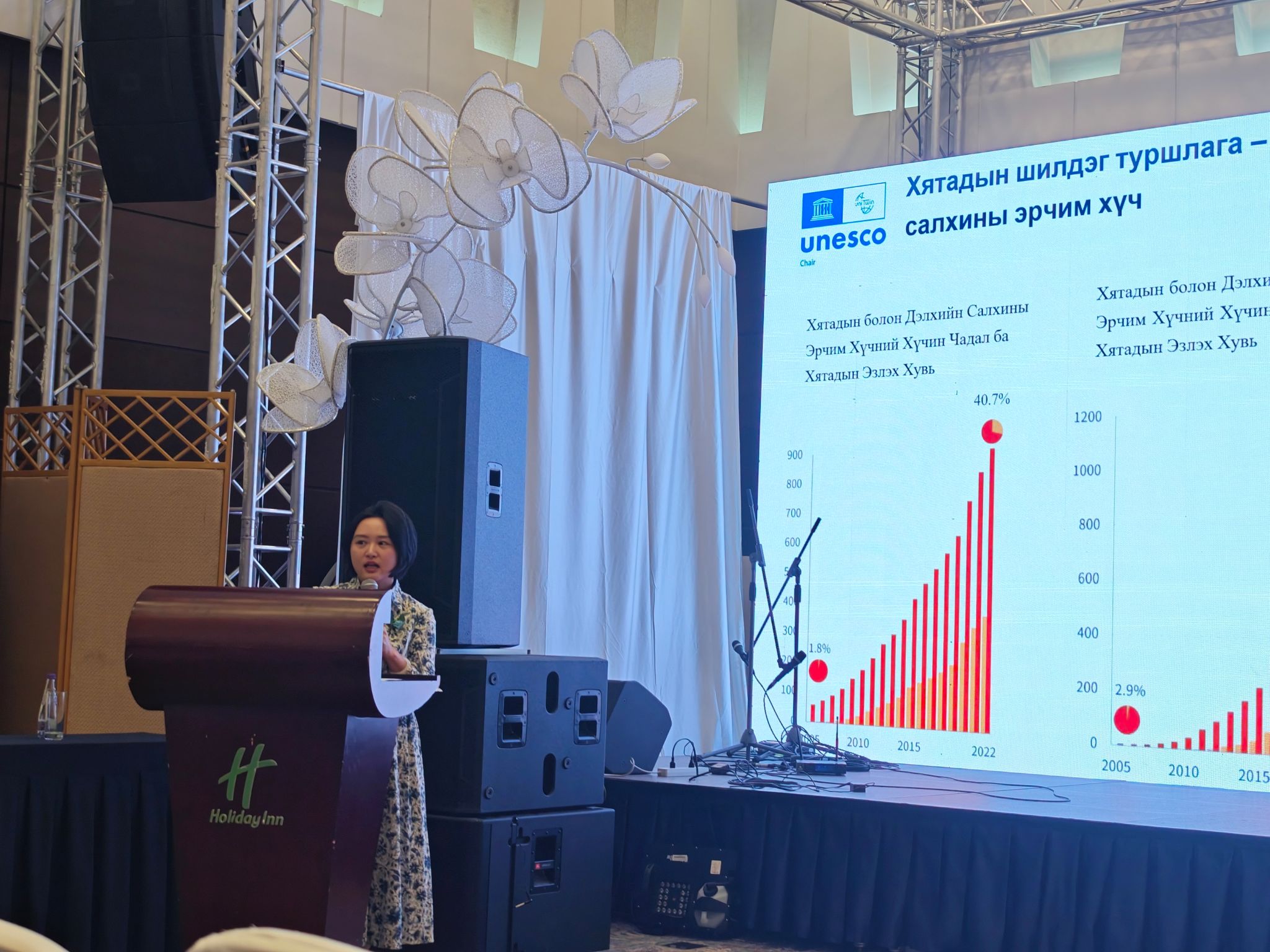
In the afternoon, Pan Liucheng, Programme Officer of the UNESCO Chair, presented a speech titled “GenAI in 2025: Reshaping Work and Redefining Skills in TVET.” He analyzed the profound impact of generative AI on job structures and skill demands, stressing the need for TVET to cultivate future-oriented digital competencies and human-AI collaboration abilities in response to technology-driven transformation.
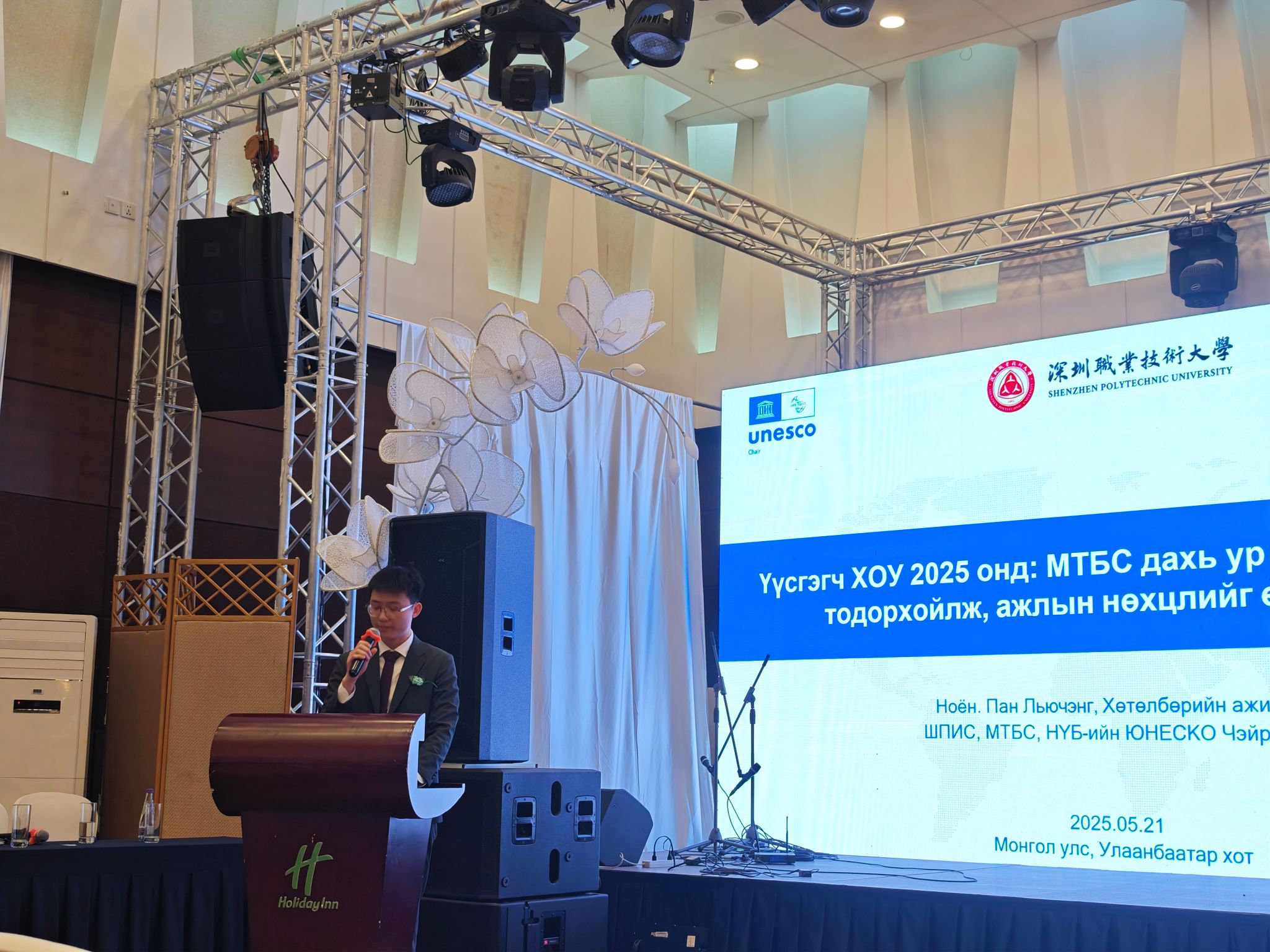
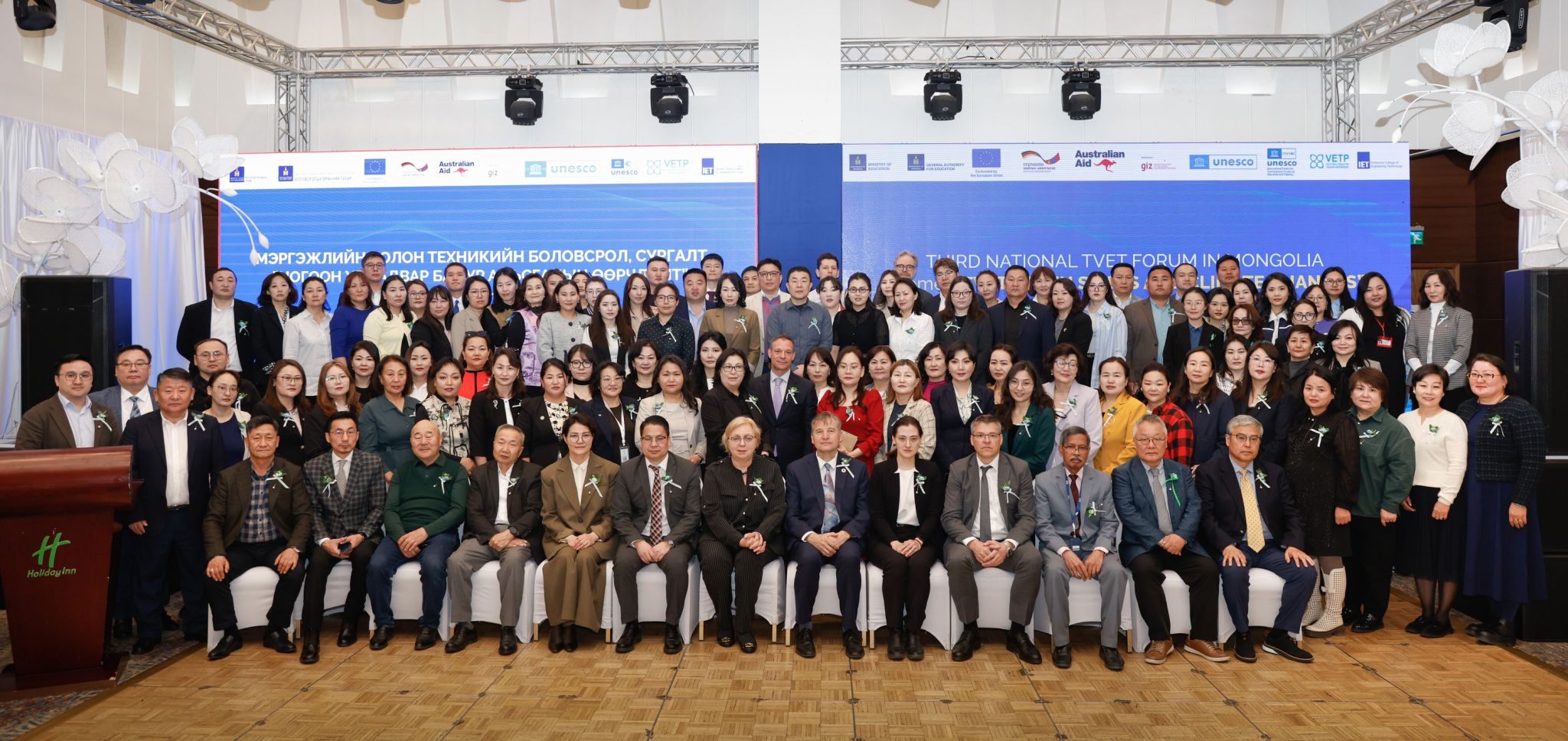
This visit marked the first overseas in-person training activity under the UNESCO Chair on Digitalization in TVET, focusing on the joint construction of the Digital Competence Development Centre. It comprehensively showcased SZPU’s achievements and talent strengths in the digitalization, deepened practical cooperation between China and Mongolia in teacher training, curriculum resource sharing, and future joint research. The exchange not only promoted the high-quality implementation of the UNESCO Chair projects but also significantly enhanced SZPU’s international influence and reputation in TVET sector.
